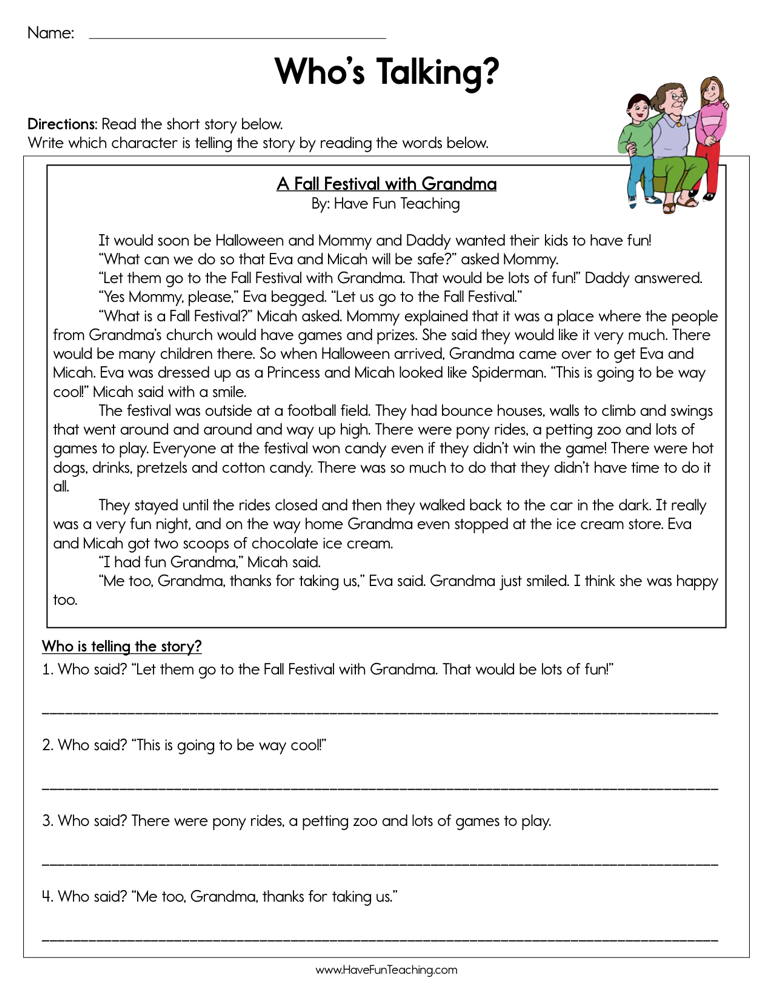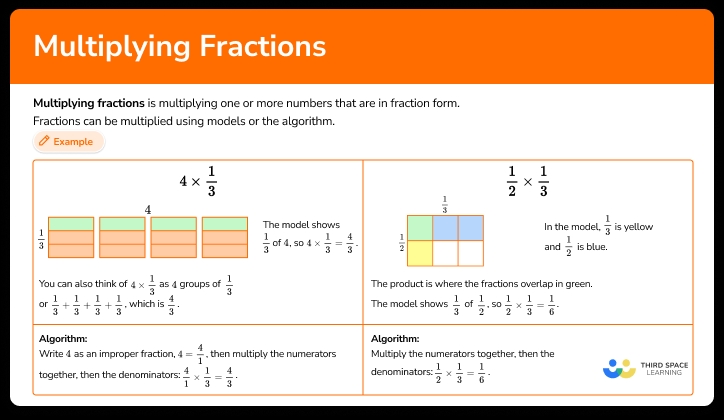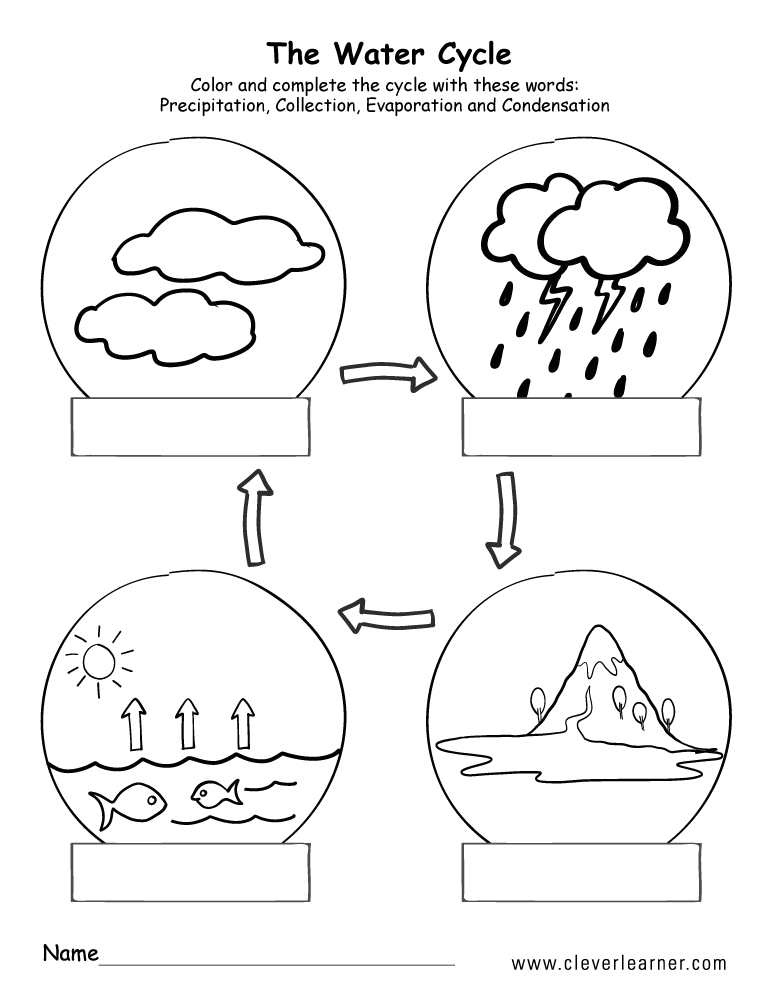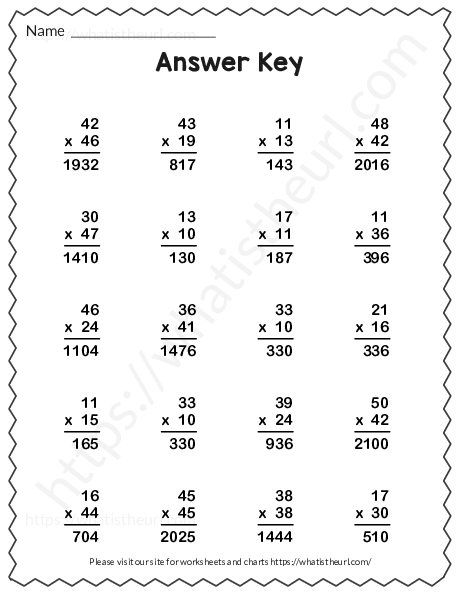Overcoming Addiction with Recovery Worksheets
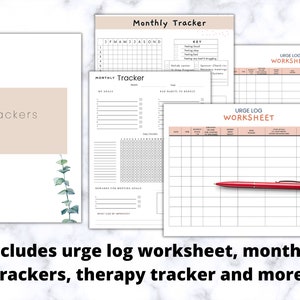
Understanding Addiction and the Recovery Process
Addiction is a complex and multifaceted issue that affects millions of people worldwide. It is a chronic disease characterized by compulsive behavior, despite the negative consequences. Overcoming addiction requires a comprehensive approach that addresses the physical, emotional, and psychological aspects of the individual. One effective tool in the recovery process is the use of recovery worksheets. In this blog post, we will explore the concept of addiction, the recovery process, and how recovery worksheets can aid in overcoming addiction.
The Stages of Addiction
Addiction is a progressive disease that goes through several stages. Understanding these stages is crucial in developing an effective recovery plan.
- Pre-contemplation: The individual is not aware of their addiction or denies its existence.
- Contemplation: The individual starts to recognize the negative consequences of their addiction and considers seeking help.
- Preparation: The individual makes a commitment to seek help and starts to make plans for recovery.
- Action: The individual takes concrete steps towards recovery, such as seeking professional help or joining a support group.
- Maintenance: The individual works to maintain their recovery and prevent relapse.
The Recovery Process
Recovery from addiction is a long-term process that requires dedication, hard work, and support. The following are the key components of the recovery process:
- Detoxification: The individual undergoes a medically supervised detoxification program to remove the substance from their body.
- Counseling: The individual receives counseling to address the underlying issues that contributed to their addiction.
- Support groups: The individual joins a support group, such as Narcotics Anonymous or Alcoholics Anonymous, to connect with others who are going through similar experiences.
- Relapse prevention: The individual learns strategies to prevent relapse and maintain their recovery.
How Recovery Worksheets Can Aid in Overcoming Addiction
Recovery worksheets are a valuable tool in the recovery process. They provide a structured approach to addressing the physical, emotional, and psychological aspects of addiction. The following are some ways recovery worksheets can aid in overcoming addiction:
- Identifying triggers: Recovery worksheets can help individuals identify their triggers and develop strategies to avoid or manage them.
- Developing coping skills: Recovery worksheets can help individuals develop healthy coping skills and strategies to manage stress and emotions.
- Improving self-awareness: Recovery worksheets can help individuals improve their self-awareness and understand the underlying issues that contributed to their addiction.
- Enhancing motivation: Recovery worksheets can help individuals enhance their motivation to recover and maintain their progress.
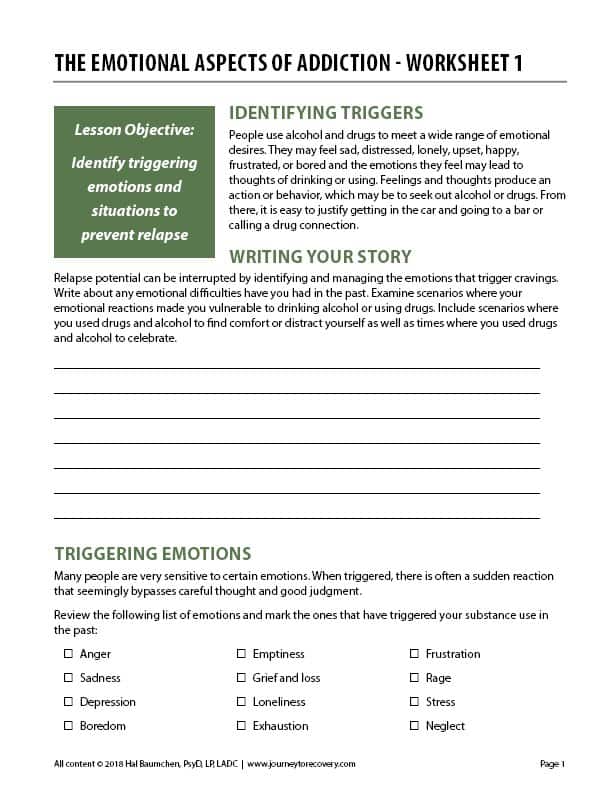
| Recovery Worksheet | Description |
|---|---|
| Trigger Identification Worksheet | This worksheet helps individuals identify their triggers and develop strategies to avoid or manage them. |
| Coping Skills Worksheet | This worksheet helps individuals develop healthy coping skills and strategies to manage stress and emotions. |
| Self-Awareness Worksheet | This worksheet helps individuals improve their self-awareness and understand the underlying issues that contributed to their addiction. |
| Motivation Enhancement Worksheet | This worksheet helps individuals enhance their motivation to recover and maintain their progress. |
📝 Note: Recovery worksheets should be used in conjunction with other recovery tools, such as counseling and support groups, to achieve optimal results.
Additional Tips for Overcoming Addiction
In addition to using recovery worksheets, the following are some additional tips for overcoming addiction:
- Seek professional help: Seek help from a mental health professional or addiction specialist.
- Join a support group: Join a support group, such as Narcotics Anonymous or Alcoholics Anonymous, to connect with others who are going through similar experiences.
- Practice self-care: Practice self-care activities, such as exercise, meditation, and yoga, to manage stress and emotions.
- Avoid triggers: Avoid triggers, such as people, places, and things, that can lead to relapse.
Maintaining Recovery
Maintaining recovery requires ongoing effort and commitment. The following are some tips for maintaining recovery:
- Attend support groups: Attend support groups regularly to connect with others who are going through similar experiences.
- Practice relapse prevention: Practice relapse prevention strategies, such as identifying triggers and developing coping skills.
- Seek ongoing counseling: Seek ongoing counseling to address underlying issues and maintain progress.
- Celebrate milestones: Celebrate milestones, such as one year of sobriety, to enhance motivation and reinforce progress.
In conclusion, overcoming addiction is a challenging and complex process that requires a comprehensive approach. Recovery worksheets are a valuable tool in the recovery process, providing a structured approach to addressing the physical, emotional, and psychological aspects of addiction. By using recovery worksheets in conjunction with other recovery tools, individuals can overcome addiction and achieve long-term recovery.
What is addiction?
+Addiction is a chronic disease characterized by compulsive behavior, despite the negative consequences.
What are the stages of addiction?
+The stages of addiction include pre-contemplation, contemplation, preparation, action, and maintenance.
How can recovery worksheets aid in overcoming addiction?
+Recovery worksheets can aid in overcoming addiction by identifying triggers, developing coping skills, improving self-awareness, and enhancing motivation.
